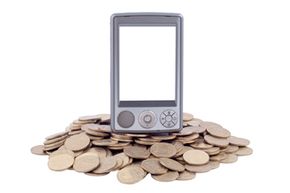Online shopping's popularity is growing by leaps and bounds. According to a 2008 Nielsen Global Online Survey, more than 85 percent of the people with access to the Internet have made a purchase online [source: Marketing Charts]. It's also a young industry -- just a few years ago, only a few sites like eBay and Amazon.com saw a lot of traffic. Today, thousands of retailers and manufacturers have online shopping options that let you skip trips to stores and long lines.
Just as companies were getting a handle on how to interface with the Web, everything changed, and it's all thanks to mobile devices. If online shopping is young, the mobile Web is still a toddler. Smartphones and tablets have created the demand for a new online experience that's tailored to touch-screen interfaces and smaller screen sizes.
Advertisement
These devices have also prompted a new focus on apps -- custom programs that create specific experiences. Since the introduction of the iPhone, mobile apps have become a big buzz word in tech circles. Every year, dozens of startup companies launch, promoting apps running on all sorts of devices. Retailers have been paying attention to the trend, and many of them have their own apps that let you shop virtual stores without accessing the Web.
Amazon and eBay haven't gone anywhere -- in fact, they lead the way in shopping statistics through mobile apps. In June 2012, a survey showed that Amazon's shopping app had 12 million unique visitors and eBay's app was up to 13 million [source: King].
Which is better, using the Web or using a retailer's app? As it turns out, the question isn't easy to answer. On the next page, we'll explain why.
Advertisement


